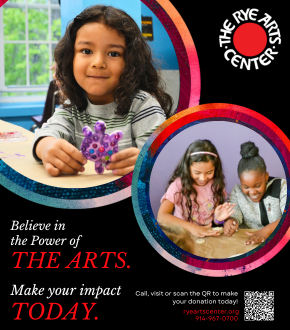By Michele Borba, Ed.D.,
Altruistic children are the ultimate “UnSelfies.” They feel another’s pain or recognize a social problem and are driven to find solutions to help. And they do so not for accolades, trophies, rewards, or to “look good” on college applications, but because they are driven by the passion of their hearts.
“Changemakers” is the term I call kids who don’t stand back when they see a problem, but instead step in to make a difference. And there are so many examples of children who are making a difference. Like Dylan Siegel, age six, knew he had to help when his best friend, Jonah Pournazarian, was diagnosed with an incurable liver disorder, and so he wrote Chocolate Bar. His book has raised more than $1 million that has resulted in new gene-therapy treatments. Or Yash Gupta who broke his glasses and couldn’t see and started thinking about the millions of kids who can’t afford corrective eyewear. So, the young teen created Sight Learning and began collecting used eyeglasses from optometrists and donated more than 9,500 pairs to kids in Haiti, Honduras, India, and Mexico.
Such is the power of empathy! And every child has the potential to become such a Changemaker if we provide the right experiences and proven parenting strategies. Altruistic leadership can be nurtured in children. We can equip children with the skills that prepare them to make a difference, in large ways and small, because deep in their hearts they know it’s the right thing to do.
Here are six steps from my book, UnSelfie: Why Empathetic Kids Succeed in Our All-About-Me World, on how we can parent a generation of caring kids to become altruistic leaders who will build a more empathetic world.
Find a cause that concerns your child.
The most successful Changemakers are determined to achieve a goal that is deeply meaningful to them. You might start by volunteering together at different local organizations and then note the issues that excite your child. You might help your child become aware of world concerns by discussing the news together to increase global consciousness and recognize that problems are everywhere.
Or share news of kids’ changemaking efforts on websites like KidsAreHeroes.org, GenerationOn.org/Kids-care-clubs, VolunteenNation.org, or Dosomething.org. When an issue such as bullying, racism, poverty, or human trafficking captivates your kid, help them develop an action plan to help solve it. Then watch to discover your child’s learning style.
• Do they prefer working alone or with others? Outdoors or inside? With younger kids or older kids?
Match the cause with your child’s passion, interest, and learning style so the project is more likely to ignite your child’s passion.
Think of possibilities.
Once you identify a concern, help your children brainstorm ways to make a difference. Narrow down ideas to those that are realistic and that they want to commit to doing. It’s great to think big but suggest starting small.
Plan it.
The more your kids think through their plan, the greater the success. Help them list required resources and people. If they need toy donations, encourage them to make flyers and post them.
Start locally.
There are big problems across the ocean, but also in
your community. Consider volunteering together at a local food bank, soup kitchen, or help your child initiate a food drive and then distribute the donations together. Take your child’s lead whether it’s volunteering at the Special Olympics or playing Chutes and Ladders with kids at a shelter.
Encourage “direct contact.”
Empathy is best activated face-to-face, so select projects that put your child in direct contact with the recipient. It could be bringing toys to the children’s shelter or delivering books to a senior citizens’ home. Every Changemaker I interviewed as I wrote Unselfie, told me that their motivation to help started face-to-face.
Paul Slovic, from the University of Oregon, discovered that our brains are more likely to empathize with one needy person, not multitudes who are suffering. Help your kids realize that they can make a difference by helping one individual: tutoring a child, reading to an elderly person, or just saying regular friendly hellos to the inbound neighbor.
Keep going!
A one-time-only service project is usually not enough to instill an empathic mind-set and help children develop altruistic leadership abilities. Help your children choose a project that can be repeated: weekly, monthly, or yearly so they can develop a habit of helping.
Don’t forget to expand your kids’ comfort zone to include “different” experiences so they can empathize with those “not like them.” Find ways to help your child be comfortable with all people.
Changemakers are kids who will make the world better. They usually have a caring adult to help support their caring commitment, but their quest to make a difference all started with empathy. It’s a crucial trait we must nurture in our children.
Los niños altruistas son los más recientes “UnSelfies*”. Sienten el dolor de otra persona o reconocen un problema social y se ven obligados a buscar soluciones para ayudar. Y lo hacen no por elogios, trofeos, recompensas o para “verse bien” en las solicitudes universitarias, sino porque están motivados por la pasión de sus corazones.
“Changemakers*” es el término que utilizo para llamar a niños que no retroceden ante un problema, sino que intervienen para marcar la diferencia. Y hay muchos ejemplos de niños que están haciendo la diferencia. Como Dylan Siegel de seis años, sabía que tenía que ayudar cuando su mejor amigo, Jonah Pournazarian, fue diagnosticado con un trastorno hepático incurable, por lo que escribió el libro Chocolate Bar que ha recaudado más de $1 millón resultando en nuevos tratamientos de terapia genética. O Yash Gupta, que rompió sus gafas y pensó en los millones de niños que no pueden pagarlas. Entonces, el joven adolescente creó Sight Learning para recolectar lentes usados de optometristas y donó más de 9500 pares a niños en Haití, Honduras, India y México.
¡Tal es el poder de la empatía! Y cada niño tiene el potencial de convertirse en un Changemaker si brindamos las experiencias correctas y las estrategias comprobadas de crianza. El liderazgo altruista puede nutrirse en los niños. Podemos equiparlos con las habilidades que los preparen para marcar pequeñas y grandes diferencias, porque en el fondo de sus corazones saben que es lo correcto.
Aquí seis pasos de mi libro, UnSelfie: Why Empathetic Kids Succeed in Our All-About-Me World, sobre cómo podemos criar niños cariñosos futuros líderes altruistas que construirán un mundo más empático.
Encuentra una causa que interese a tu hijo.
Los Changemakers más exitosos están decididos a lograr un objetivo que es significativo para ellos. Puedes comenzar por voluntariar en organizaciones locales y notar los problemas que entusiasman a tu hijo. También concientizar sobre las preocupaciones mundiales al discutir las noticias juntos y ver que los problemas están en todas partes. Comparte noticias sobre niños que se esfuerzan en el cambio en sitios web como KidsAreHeroes.org, GenerationOn.org/Kids-care-clubs, VolunteenNation.org, or Dosomething.org. Cuando problemas como bullying, racismo o pobreza cautivan a tu hijo, ayúdalo a desarrollar un plan de acción para resolverlos. Luego descubre el estilo de aprendizaje de tu hijo: ¿Prefieren trabajar solos o con otros? ¿Al aire libre o adentro? ¿Con niños más pequeños o niños mayores?
Haz coincidir la causa con la pasión, el interés y el estilo de aprendizaje de tu hijo para que sea más probable que el proyecto encienda la pasión.
Piensa en las posibilidades.
Una vez identificada la inquietud, ayúdalo a pensar en formas de marcar la diferencia. Limita las ideas a aquellas que sean realistas. Es genial pensar en grande pero sugiere comenzar en pequeño.
Planifica.
Cuanto más piensen ellos en su plan, mayor será el éxito. Ayúdalos a enumerar los recursos necesarios. Si necesitan donaciones de juguetes, anímalos a que hagan propaganda con afiches.
Comienza localmente.
Hay grandes problemas al otro lado del océano, pero también en tu comunidad. Considera ofrecerse juntos como voluntarios en un banco de alimentos o un comedor de beneficencia. Ayuda a tu hijo a iniciar una campaña de alimentos y distribuir las donaciones, voluntariar en las Olimpiadas Especiales o jugar con niños en un refugio.
Fomenta el “contacto directo”.
La empatía se activa mejor cara a cara, así que seleccione proyectos que pongan a tu hijo en contacto directo con el receptor. Podría ser llevar juguetes a un refugio o entregar libros a un geriátrico. Todos los Changemaker que entrevisté mientras escribía Unselfie, dijeron que su motivación en ayudar comenzó cara a cara.
Paul Slovic, de la Universidad de Oregón, descubrió que nuestros cerebros tienen más probabilidades de empatizar con una persona necesitada en vez de con multitudes que sufren. Acompaña a tus hijos a darse cuenta de que pueden marcar la diferencia ayudando a una persona: dando clases particulares a un niño, leyendo a una persona mayor o simplemente saludando regularmente al vecino entrante.
¡Sigue adelante!
Por lo general, un proyecto de servicio único no es suficiente para inculcar una mentalidad empática y ayudar a los niños a desarrollar habilidades de liderazgo altruista. Ayúdalos a elegir un proyecto repetible: semanalmente, mensualmente o anualmente para que puedan desarrollar el hábito de ayudar.
No te olvides de expandir la zona de confort de tus hijos para incluir experiencias “diferentes” que permitan empatizar con aquellos que “no son como ellos” ayudándolos a sentirse cómodos con todas las personas. Los changemakers, tienen por lo general, un adulto afectuoso para ayudarles a apoyar su compromiso, pero su búsqueda para marcar la diferencia comienza con la empatía: un rasgo crucial que debemos cultivar en nuestros hijos.





